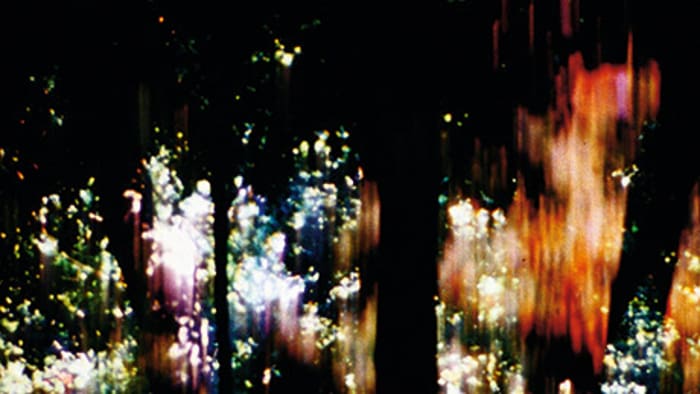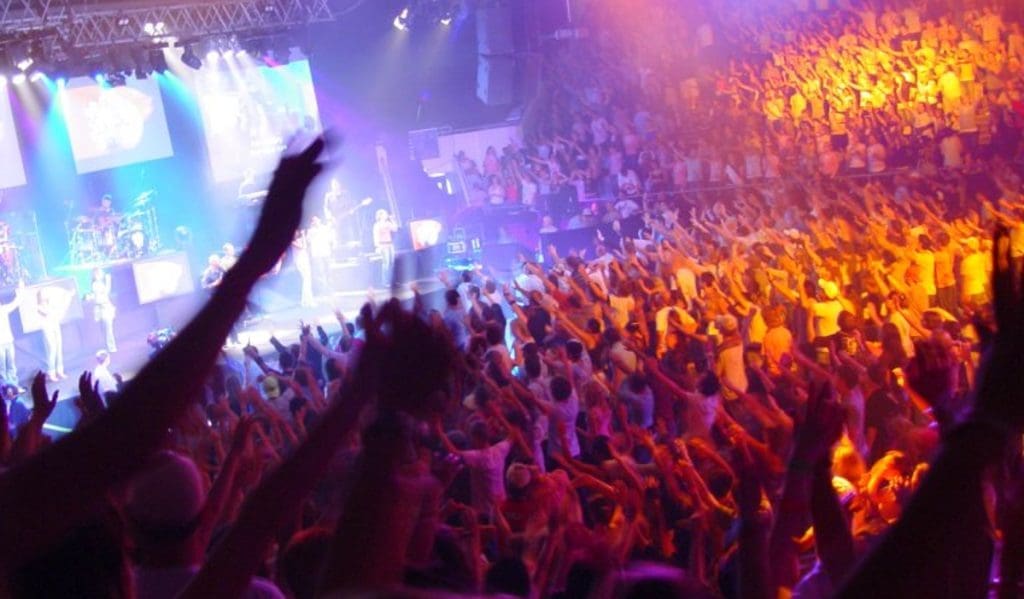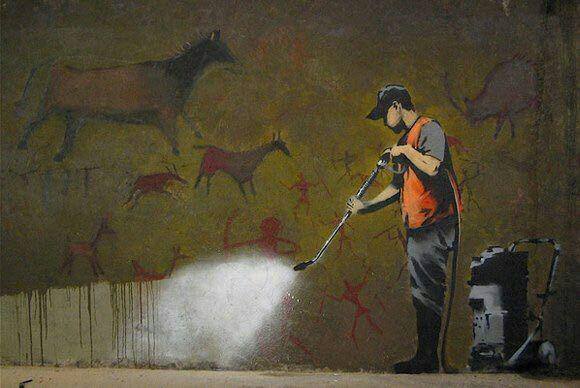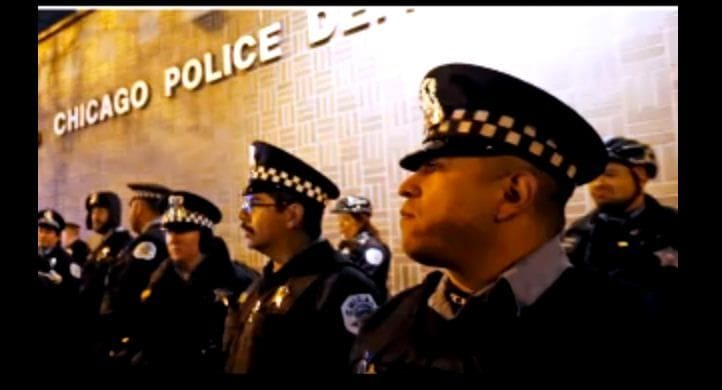The following is an extended excerpt of a radio interview, edited for readability. Listen to the whole interview:
On 12 December 2015, Chuck Mertz of This is Hell! Radio (Chicago) and author Roy Scranton had a conversation that cast all our work—at the Antidote Writers Collective, sure, but on the revolutionary left more broadly—in a new light…without directly addressing ‘us’ or our ‘work’ at all. Scranton presents a re-thinking of the present context in which we are working which, if he is right (and we suspect he is), demands to be considered as we plan, organize, and act in all of our campaigns for human liberation and social, economic, and environmental justice.
The scenario Scranton describes, of climate-caused societal collapse, mass migrations and conflicts, and potential mass death, should not be understood as a possible future, though it is so tempting. It is a scenario unfolding right this minute, and its tangible effects—tangible even to structurally privileged populations—are being felt (or feared) more and more, by more and more people.
The question posed by the interview—how to die, or how to learn how to die, as a society—could be slightly rephrased as “How shall we prepare for our death?” Although this phrasing inaccurately regards the death of society as an event rather than a process, it is still worth considering because it contains the more propulsive question of “What, actually, shall we do?
The AWC will dare an answer similar to Scranton’s: run towards it. No, this is not some ultra-intense nihilistic call to collective suicide. We’re still in a metaphor here. How you prepare for death as an individual human (say we as young, mostly healthy, unsuspecting dolts) probably depends a lot on where you think you’re going. If there is an afterlife for humanity at all, it is unlikely to be particularly comfortable, convenient, or customer-friendly. Whether this is a big deal or not is up to us.
Rebecca Solnit has explored how people respond to disaster in a way that can cause creeping optimism. To crudely summarize the argument of her book Paradise Built in Hell: precipitous drops in basic living conditions for masses of people tend to bring out the best in these people (but the worst in authorities). So when we say “run towards it,” we mean: live everyday as if disaster had already struck (because, well, it has). That is: be generous, helpful, empathetic, and kind; form spontaneous communities with strangers and cooperate to see that the needs of all are met; improvise; and be comfortable with a little dirt, a little cold, and a little hunger (unless it’s someone else’s).
There are readers of this zine who are nodding impatiently, saying “I know, I am.” That is to say: there are people already doing this, already running towards it, already “preparing for death” and what comes after. Unless they are crushed by authoritarianism, these people will determine what comes after. We are referring, not so subtly, to activists meeting “crisis” with a smile (and maybe a pair of boltcutters) on the continent still known as Europe, but this could describe many autonomous resistance-artists in many crisis contexts all over the globe.
Join them—not just to survive, but to thrive.
“We’re generally not aware of how bad the situation is, or how soon we’re likely to have to deal with it, or how broadly it’s actually going to undermine and destabilize our way of life and the way that we live in the world today.”
Chuck Mertz: Is our civilization dying, or is it already dead? Here to help us understand how we can adapt to a post-climate-change world is Roy Scranton. He is the author of Learning to Die in the Anthropocene: Reflections on the End of a Civilization.
Good morning, Roy.
Roy Scranton: Good morning, Chuck, how are you doing?
CM: Great. Really great to have you on the show.
You write how you rode into Baghdad shortly after the “shock and awe” bombing campaign, and you describe the city of six million, a city about the same size as Houston or Washington, DC, as “totaled: water, power, traffic, markets, and security fell to anarchy and local rule.”
You write how two and a half years later, back in the US, you watched on television as Hurricane Katrina hit New Orleans: “This time it was the weather that inspired shock and awe, but I saw the same chaos and collapse I’d seen in Baghdad, the same failure of planning, and the same tide of anarchy.
“The 82nd Airborne Division took over strategic points and patrolled streets now under de facto martial law. My unit was put on alert and trained for riot control operations. The grim future I’d seen in Baghdad had come home. Not terrorism, not WMDs, but the machinery of civilization breaking down, unable to recuperate from shocks to its system.”
What do you think is the number one security issue of the United States? Everybody says it’s ISIS. Do you think that that an ISIS attack on soft targets in the United States is not our number one security concern?
RS: ISIS is predominately a local problem, in the Middle East. They are motivating and working on terrorist attacks beyond that. But even with the attacks in Paris, terror attacks in Europe have declined substantially over the past ten years, compared to what they were before.
The reason that climate change is the primary security issue globally and for the United States is not because it’s going to cause specific instances like what we saw with Hurricane Katrina where one city breaks down. It is going to cause that. But it’s going to cause that manifold, multiply, across the world. And it is also going to continue to drive things like ISIS.
ISIS is a result of a lot of different things. In part, American policy in Iraq, but in part the drought in Syria that was driven by climate change, driven by increasing temperatures and changing climactic conditions in the Middle East and thousands of young men having to leave farms in Syria and go into cities because there’s no work where they live. They wind up joining groups like ISIS.
The general situation of increasing instability, increasing pressures on food resources and energy resources and water: that all is going to drive security instability in ways that are hard even to imagine now.
CM: To what degree do you think we can Paris-talk our way out of climate change? Do you think that kind of structure, intergovernmental discussions, can mitigate what are the inevitable symptoms of climate change?
RS: I’m very pessimistic about the possibility of global international agreements being able to address climate change. I was just reading the agreement that they’re discussing right now in Paris. It’s functionally empty. It’s completely voluntary. Almost entirely. It doesn’t demand, it doesn’t hold any countries accountable for doing anything to bring down emissions, to bring down carbon consumption, or to develop technologies that might mitigate. It says they ought to. It asks them to do so. But it doesn’t hold anybody accountable. And if you have an agreement that doesn’t hold people accountable, then there’s no way of enforcing it, which means it’s not something we can depend on.
And we’ve seen this for twenty years. This is the twenty-first meeting of this organization of nations working to address the problem of climate change, and they’ve consistently failed. I have very little hope that they’re actually going to be able to come together and do something.
People talk about the international agreement to solve the problem of acid rain as one positive example, or dealing with the hole in the ozone layer. But these were localized, easy-to-deal-with problems on a completely different scale than what we’re dealing with in climate change. Trying to end climate change is much more like trying to end war or end nuclear proliferation or end genocide or end the use of chemical weapons or end terrorism: none of these things has ended, though all the nations of the world have been ostensibly working on these problems for at least a hundred years.
My point is that the problem is, realistically, too big to address adequately with the political technology that we have at the moment.
“It’s going to be a hard time, the future that we’re moving into. Most of the likely possibilities will not be very good for children and puppies and other living beings. Confronting that, and learning to accept that, and learning to work within our fallen human condition—I think this is key.”
CM: To you, what explains why this is not a bigger story in the media?
RS: To be fair, I think the media has been covering it. But I agree that it hasn’t necessarily been adequate to the enormity of the situation. We can explain that by reference to the fact that media organizations are businesses. They have to sell their product—but not to readers; they’re selling ad space. So they have to go with stories that bring readers and bring clicks and bring eyeballs. They’re doing the right thing to report on climate change, but if they were to shift…
I think the situation is apocalyptic, even though it’s a slow apocalypse. It’s going to happen over decades. But if the media were to shift into that narrative, I think editors and producers would be rightfully concerned that they’re going to sound like lunatics and scare their audiences away.
It’s part of that complicated process: we all really want to believe that the world that we live in right now, the civilization we live in right now, is just going to keep going like it is. That we may have a problem and we’re going to deal with it somehow, but our day-to-day life doesn’t have to change. That it’s not going to change. That we can still keep doing the things that we do.
And that’s just not the case. It’s really hard to confront that.
CM: You write, “We’re fucked. The only questions are how soon and how badly.
“The IPCC 2014 report on climate change impacts cautions: ‘Without additional mitigation efforts beyond those in place today, and even with adaptation, warming by the end of the 21st century will lead to high to very high risk of severe, widespread, and irreversible impacts globally.’
“According to the World Bank, 2.7 degrees (Fahrenheit) of warming now appears inevitable, even if we were to stop emitting carbon dioxide worldwide right now. Projections from researchers at the University of Hawaii find us dealing with historically unprecedented climates as soon as 2047. Climate scientist James Hansen, formerly with NASA, has argued that we face an ‘apocalyptic future,’ a bleak view that is seconded by researchers worldwide.”
Roy, that’s only thirty years from now. Do you think the general public is aware that we are “fucked”? Or do you think, as you were just saying, it’s something inherent in us to ignore the fact of the inevitability of climate change?
RS: I think we’re generally not aware of how bad the situation is, or how soon we’re likely to have to deal with it, or how broadly it’s actually going to undermine and destabilize our way of life and the way that we live in the world today.
I don’t think there’s a cognizant, deep enough awareness of that, though there is some kind of vague, hazy awareness of climate change as a problem. At least in part, that’s because it’s not something most of us really want to think about that much. Because of how immense it seems, because we want to go on with our daily lives and do all the things we need to do, like go to work and have our radio show and write our books or have kids and look to the future—believing that there’s a future.
CM: So not only is there an unwillingness to accept climate change, you also write about how we have an inability to adapt to climate change, or to chaos in general. You write, “From the perspective of many policy experts, climate scientists, and national security officials, the concern is not whether global warming exists or how we might prevent it, but how we are going to adapt to life in the hot, volatile world we’ve created.”
You’ve experienced the devastation of the Iraq War. You’ve experienced the devastation of Katrina in New Orleans. From what you’ve seen in those cases, how well do we adapt—does the system adapt—to disaster and chaos?
RS: Not very well. It depends a lot on what kinds of people are working on the ground. It depends a lot on what kind of machinery, what kinds of stories, and what kinds of ideas these people on the ground have.
To look back to Iraq, for example: the United States and the occupying government under Paul Bremer basically created conditions of statelessness at the beginning. They evacuated the Baathist state for a variety of reasons, and dismantled the army and so on. Nature abhors a vacuum—and what rushed in to fill that void was sectarian politics that were, intentionally or not, fed by the United States’ policies.
So the United States fed the divisions between Shi’a and Sunni, and that became the definitive characteristic of the political landscape in Iraq. To the point where, two years after the American invasion, if they found a body in the street in Baghdad, they could tell who killed it by the manner of death.
And that’s an extreme version, but that kind of ethno-nationalist or ethno-sectarian identity politics is what humans sometimes fall into when the state evacuates, when the infrastructure of civilization as we understand it disappears.
I think that kind of sectarian or ethno-nationalist conflict is one of the greatest dangers that we face in the coming time. We need to plan ahead for how to work against that, and mitigate that, and find ways to think of ourselves as resilient, adaptive, community-oriented beings.
CM: What I fear, Roy, is that the adaptation, the new idea that we are going to embrace in response to disaster, in response to chaos, in response to climate change, will be something fascist, totalitarian, authoritarian, something worse than a police state.
Do you think that is a possibility for our future?
RS: That is a distinct worry. It’s a very dark, grim time, and it’s hard to know exactly how the future is going to play out. But most of the likely possibilities will not be very good for children and puppies and other living beings. It’s going to be a hard time, the future that we’re moving into. Confronting that, and learning to accept that, and learning to work within our fallen human condition—I think this is key.
“We’re on a track right now, a business-as-usual-track, that’s going to lead us into a period of intense conflict and suffering. I don’t know that that is avoidable at this point. But what kind of world humans make on the other side of that is something we might be able to do something about.”
CM: You write, “If, as the sixteenth century philosopher Michel de Montaigne asserted, ‘to philosophize is to learn how to die,’ then we have entered humanity’s most philosophical age, for this is precisely the problem of the Anthropocene. The rub now is that we have to learn to die not as individuals but as a civilization.”
So will climate change kill civilization, as we currently understand it? Will our civilization, do you think, die off?
RS: I think the civilization that we currently live in is already dead. I think if we consider our climate change future—which is actually just the present only more—the fact of the matter is that whatever happens, this way of life, which is based around cheap carbon energy, capitalist consumption, and massive global infrastructure fed by those things, is simply not sustainable. It’s done. Fossil-fuel capitalism is done.
We can choose how to transition to something else. There is some agency there. That’s what is meant by “learning how to die:” learning how to let this civilization go. Because there is no way it can keep going the way it is. Even in the best case.
There’s this idea of shifting to an entirely renewable-energy-based economy and there are these proposed changes that are presented as solutions—carbon scrubbers and solar energy and wind power. Even if we were to make that change, that would be a completely different kind of society than the one we live in now. It’s not just that we would have different energy sources. We would have completely different kinds of infrastructure, and completely different kinds of political technology would develop out of that form of life, that form of energy.
So in the best case scenario, this civilization is still dead, but we transition somewhat consciously to a new kind of civilization. Or, there’s the other option. Which is collapse and barbarism and mass death.
CM: You write, “The greatest challenge the Anthropocene poses isn’t how the Department of Defense should plan for resource wars, whether we should put up sea walls to protect Manhattan, or when we should abandon Miami. It won’t be addressed by buying a Prius, turning off the air conditioning, or signing a treaty. The greatest challenge we face is a philosophical one: understanding that this civilization is already dead. The sooner we confront our situation and realize that there’s nothing we can do to save ourselves, the sooner we can get down to the difficult task of adapting with moral humility to our new reality.”
But wouldn’t that acceptance lead to a complete lack of faith in the future, and our economy would be devastated? Isn’t it that the quicker we “accept,” the quicker we will have chaos?
RS: This is something that I struggle with when I’m talking with people about the book. I’m often accused of nihilism. People often tell me, “We need to fight for this system; we need to fight for what we’ve got now, otherwise you’re just giving up.” And that’s not the situation at all.
The fact is, we’re trapped within our current way of life, and our current way of imagining the world, and find it almost impossible to shift out of that. But that way of life is over. That way of life is not sustainable. The more we hang on to this way of life; the more desperately we cling to it; the more outrageously we deny our situation and insist that we just need to be strong and then we’ll be great—the more we do all of that, the more we’re going to be susceptible to extremist ideologues like Donald Trump; the more we’re going to create new problems that we feel like we can solve, in order to ignore this other problem that we can’t.
All that is just going to increase the destruction, and increase the violence, and increase the suffering. Confronting our failure, accepting our failure, doesn’t mean that there’s no meaning in life anymore. It offers us the opportunity to find new reasons to live and new reasons to move forward.
It’s like confronting our own mortality. Every mature human adult has at some point faced the idea of their own mortality. We’re all going to die some day. That’s just part of the human condition. You don’t stop living because of that fact. At its best, coming to terms with our own mortality—learning how to die—offers us a chance to reconsider our ethical commitments, and re-commit ourselves to a more reflective, conscious vision of a human future. But you only get there by looking into the abyss first.
CM: Roy, one last question for you, and as we do with all of our guests, it’s the Question from Hell: the question we hate to ask, you might hate to answer, or our audience is going to hate your response.
One of the people who has made rave reviews of your book is a past guest on our show, Naomi Klein. But there is one thing that you and Naomi seem to disagree about: you don’t have the same faith in social movements being able to mitigate some of the aspects of climate change.
Have you tried to convince Naomi of your more pessimistic view of social movements mitigating some aspects of climate change? Or if you haven’t, how would you convince her?
RS: I haven’t tried to convince her otherwise except insofar as I’m making that argument in the book. I have a great respect and admiration for Naomi and her work. My concern is that the more focused we are on working within the current system, like in Paris, the more we are focused on fighting a fight that we’ve already lost; and the less energy, the less attention we’re giving to adapting and looking forward to the future.
We’re on a track right now, a business-as-usual-track that’s going to lead us into a period of intense conflict and suffering. I don’t know that that is avoidable at this point. But what kind of world humans make on the other side of that is something that we might be able to do something about. We need to do that by accepting the current situation and working to be a bridge between the human past and the human future. We need to commit ourselves to being at the service of humanity’s future.
CM: Roy, it has been a pleasure speaking with you this week. Really a great book; I really appreciate you being on the show.
RS: Well, thanks for having me on, Chuck, it’s been a pleasure.
Transcribed and printed with permission.





